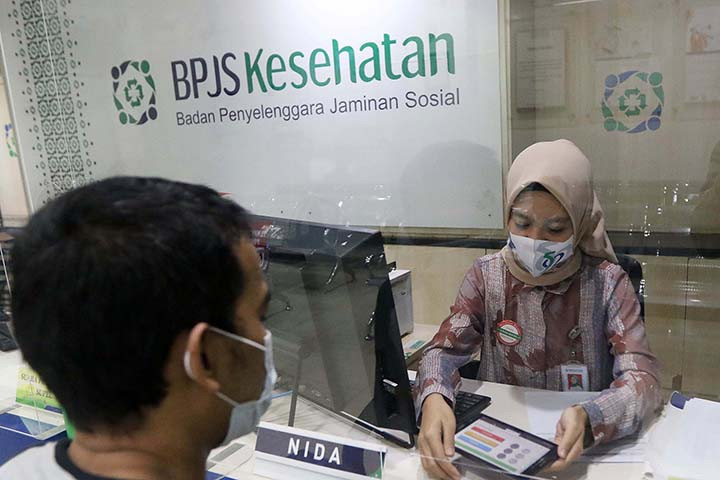Popular Reads
Top Results
Can't find what you're looking for?
View all search resultsPopular Reads
Top Results
Can't find what you're looking for?
View all search resultsBig data can be used to aid JKN: Researchers
Change text size
Gift Premium Articles
to Anyone
R
esearchers are urging the government to tap into big data to optimize the National Health Insurance (JKN) program, which has suffered financial deficits since its establishment.
“Big data opens up an opportunity for us to improve the efficiency and quality of health services and solve various issues in the health sector,” SMERU Research Institute director Widjajanti Isdijoso said in a recent virtual discussion.
Big data seeks to make sense of large, diverse and changing data sets to address issues and make predictions.
One way to capitalize on big data is to use it to predict patients who have a high risk of high-cost, catastrophic diseases based on their economic, social and health factors, SMERU research and outreach deputy director Athia Yumna said during the discussion.
Such predictions would help health facilities prevent costly diseases early and use more efficient treatments instead, she added.
Heart disease, cancer and stroke were the three most costly catastrophic diseases last year, according to a 2019 financial statement of the Health Care and Social Security Agency (BPJS Kesehatan), which runs the JKN. Noncommunicable diseases also put a large burden on the JKN.
Cutting down costs by leveraging big data could help sustain the deficit-stricken JKN. The national insurance scheme has been operating at a loss since it was launched in 2014, with officials forecasting a deepening trend from the Rp 13 trillion (US$872.59 million) deficit incurred last year.
Kalsum Komaryani, who heads the Health Ministry's health insurance and financing center, said that BPJS Kesehatan was no longer in a deficit as of July but warned of a looming deficit if COVID-19 subsided next year, as JKN claims would rebound and BPJS Kesehatan’s spending would increase.
Nonetheless, Athia of SMERU said that scattered and incomplete data, a lack of data infrastructure and security issues were roadblocks to exploiting the abundance of data in Indonesia's health sector.
But Indonesia is not alone in facing such problems. Less than 1 percent of the world's data was being analyzed as of 2015, said Dedi Iswanto, head of IBM Indonesia’s big data and analytic services, as healthcare systems were challenged by large volumes of data.
Dedi said the average hospital was estimated to have more than 665 terabytes of data in 2015, quoting an infographic by American data storage company NetApp.
The health sector must also find ways to prevent the rising number of data security breaches, he added, which had slowed down the adoption of emerging technologies.
“We hope that the world of health care, as it gains more and more data, can deliver this data so that it can gain more insights on how to improve its services, quality and output,” he said.
To tackle the fragmented data problem, IBM has partnered with American Artificial Intelligence (AI) and data analysis startup Clarify Health Solutions to provide services that will help predict how patients will likely respond to care using big data and AI.
The government has been making strides in the development of BPJS Kesehatan’s big data platform, which compiles data from its branch offices. It is working on making a JKN data portal that allows public access to disclosable data.
BPJS Kesehatan deputy director for enterprise data management and information, Andi Afdal Abdullah, said the country also had several regulations to protect health data privacy, including the Electronic Information and Transactions (ITE) law and the Public Information Disclosure Law (KIP).
Health Ministry data and information center head Anas Ma’ruf said the ministry had used big data to bolster the Satu Data Kesehatan (One Health Data) application, which integrated various sources of health data. The application was now used by 90 percent of regencies and cities in Indonesia, he added.
The ministry has partnered with universities to train people to analyze big data. It is also formulating a road map with the World Health Organization and consultants to develop big data analytics in the ministry.
The National Social Security Council (DJSN), responsible for monitoring the JKN program, has been using big data in its Sismonev (Monitoring and Evaluation System) platform to monitor the growth of policyholders and health facilities under JKN, among other data.
“Data is a treasure. So will we let it be buried or will we use it to make evidence-based policies?” Muttaqien from the DJSN said.










